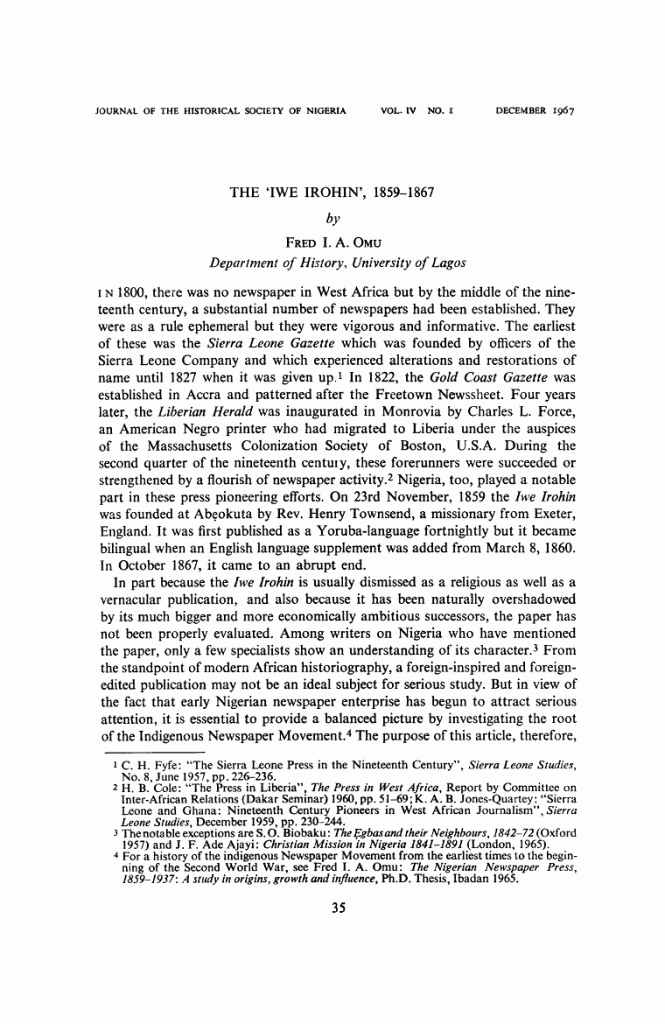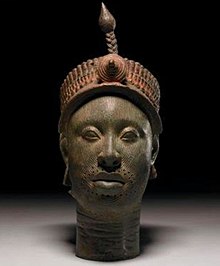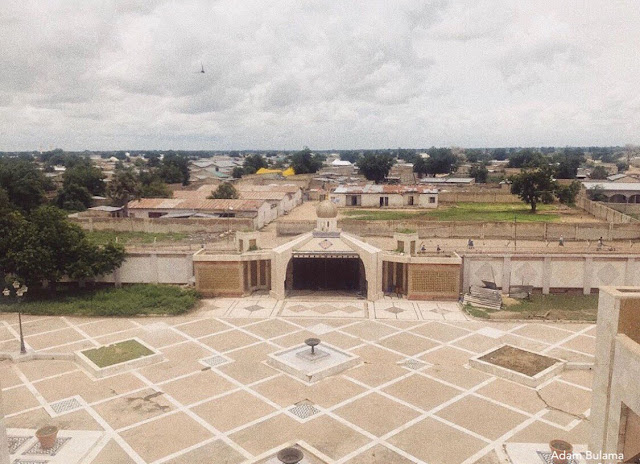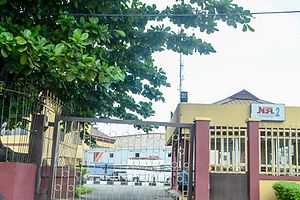What is the Name of the First Newspaper in Nigeria?

Introduction
Ever wondered where Nigerian media began? How did it all start? The history of print media in Nigeria dates back over a century to a time when colonial powers held sway over much of Africa, yet in this era of control and suppression, Nigeria’s very first newspaper found its voice. Known as the Iwe Irohin, this groundbreaking publication didn’t just report news; it ignited conversations that would shape the future of Nigerian journalism, politics, and culture.
In this article, we’ll explore everything about the first newspaper in nigeria, Iwe Irohin, from its establishment and founder to its role in sparking early social and political change in Nigeria. We’ll dive deep into its legacy and the influence it still has on Nigerian media today.

Overview of Nigerian Print Media
To fully appreciate Nigeria’s print media beginnings, let’s take a quick journey into the global origins of newspapers. Before the first press rolled in Nigeria, newspapers were already a powerful tool worldwide, influencing thoughts, pushing boundaries, and uniting communities. As early as the 1600s, newspapers had spread across Europe, becoming the chosen medium to inform, question, and sometimes challenge authority.
Early Print Media in Nigeria
By the 1800s, European missionary activity and colonial expansion introduced Nigeria to Western education and media. Newspapers and books quickly became tools for spreading information among locals and missionaries. The first seeds of Nigerian journalism were sown, but the journey was far from simple. Amidst this background, the first Nigerian newspaper emerged as a voice for both Nigerians and missionaries, pushing for awareness and change.
The First Newspaper in Nigeria
So, what exactly was this first newspaper called, and what did it represent?
Who Founded the First Newspaper in Nigeria?
The very first Nigerian newspaper, Iwe Irohin fun Awon Ara Egba ati Yoruba, was founded by Reverend Henry Townsend, an Anglican missionary, in 1859. Often abbreviated as simply Iwe Irohin, this paper held a mission beyond profits. It aimed to inform and educate, fostering literacy and encouraging critical thought among the Yoruba-speaking people. Townsend’s venture into journalism was driven by a deep desire to provide accessible news to local communities.
Establishment and Background
In 1859, Iwe Irohin was established in Abeokuta, a town within the Yoruba region. As a bilingual newspaper, it published in both Yoruba and English, making it accessible to a broader audience. By printing in Yoruba, Townsend not only reached more people but also honored local culture, language, and identity, which in turn strengthened the community’s sense of pride and ownership.
Name and Vision
The full name, Iwe Irohin fun Awon Ara Egba ati Yoruba, roughly translates to “Newspaper for the Egba and Yoruba People.” It wasn’t a flashy name, but it was impactful. Townsend’s mission was to make information available, and he named it with a simple purpose: to identify the target audience and deliver a sense of belonging to the Yoruba-speaking populace.
Socio-Political Influence
In a society where colonial rule dictated much of everyday life, Iwe Irohin did more than just report news; it stirred conversations on social and political issues, from the importance of literacy to the ethics of governance. The newspaper’s presence encouraged a shift in how the Yoruba people, and later all Nigerians, saw their role in society and even helped lay the groundwork for a budding Nigerian press.
Who Was Henry Townsend?
To fully understand the purpose and impact of Iwe Irohin, let’s look into the life of its founder, Reverend Henry Townsend. Townsend wasn’t a typical missionary; his aspirations extended beyond just religious teaching. He saw media as a powerful tool to educate, connect, and ultimately uplift Nigerian communities.
Mission and Ideals
Townsend’s background as a missionary heavily influenced his approach to journalism. Rather than focusing solely on preaching, he wanted to foster a more educated, literate society. Iwe Irohin became his means of helping people read, learn, and discuss relevant issues openly.
Impact on Nigerian Politics
Although Iwe Irohin was initially seen as a local voice, its impact reached far beyond Abeokuta. It became a platform where people could express their views on governance, making it Nigeria’s first public forum for discussing political matters. Over time, the publication became a subtle yet strong advocate for societal improvement and indirectly challenged colonial norms, giving Nigerians a new lens through which to view their reality.
The Legacy of the First Newspaper in Nigeria
When Iwe Irohin first hit the press, it became more than just ink on paper. It laid the groundwork for what would later become a vibrant Nigerian press landscape, pioneering ideals like press freedom, social responsibility, and cultural respect in journalism.
Lasting Impact on Nigeria’s Press Freedom
Though Iwe Irohin operated under colonial rule, it embodied the values of transparency and accountability. By providing a platform where people could share their views, it fostered a sense of press freedom that Nigerian newspapers continue to champion. This freedom didn’t come without resistance; colonial authorities often viewed press activity with suspicion, yet Iwe Irohin proved that even a small publication could serve as a voice for the public.
Key Milestones
Since its inception, Iwe Irohin inspired several other publications and became a reference point for Nigerian journalism. Notably, even after its closure in the 1860s following conflict with colonial forces, the seeds it had planted continued to flourish. By the early 1900s, Nigeria saw a surge in newspaper activity, with publications advocating for Nigerian rights, cultural pride, and independence. Iwe Irohin became a symbol of what print media could achieve in Nigeria.
Cultural Impact
Besides its political significance, Iwe Irohin profoundly affected Nigerian culture. By prioritizing the Yoruba language, it highlighted the value of local languages and identities. This focus on language not only increased literacy among the Yoruba-speaking population but also encouraged people to cherish their heritage. Even today, many Nigerian newspapers publish in local languages alongside English, a practice that can be traced back to Townsend’s original vision.
Challenges Faced by Early Nigerian Newspapers
Early newspapers in Nigeria, especially during colonial times, didn’t operate without obstacles. Colonial administrators closely monitored the press, fearing that widespread information could inspire dissent. Despite this, Iwe Irohin managed to persist for years, although it eventually encountered its share of suppression.
Colonial Censorship and Struggles
In an era when colonial authorities exercised strict control, Iwe Irohin walked a fine line between informing the public and avoiding conflict with colonial powers. The government frequently restricted topics deemed sensitive, limiting what could be printed. This censorship became a major struggle, and although Iwe Irohin was eventually shut down in 1867 due to rising tensions, it had already ignited a fire for free speech in Nigeria.
Press Freedom and Limitations
The struggle for press freedom in Nigeria has roots in Iwe Irohin’s early years. The newspaper showed Nigerians the importance of a free press, where opinions and issues could be openly discussed. While colonial powers tried to suppress these ideas, Iwe Irohin helped lay the foundation for press freedom, a principle that modern Nigerian journalists still advocate for, often amidst significant challenges.
Lessons for Modern Nigerian Media
The legacy of Iwe Irohin holds valuable lessons for today’s media landscape in Nigeria. Its dedication to social justice, cultural identity, and education still serves as a model for journalists striving to balance truth with integrity. In a time when information is readily available yet often questioned, Nigerian media can look to Iwe Irohin as a reminder of journalism’s potential to foster unity, empower communities, and hold those in power accountable.
Conclusion: The Legacy of the First Newspaper in Nigeria
The story of Iwe Irohin, the first newspaper in Nigeria, is more than just a tale of early journalism; it’s a foundation on which modern Nigerian media rests. Established by Reverend Henry Townsend in 1859 in Abeokuta, Iwe Irohin fun Awon Ara Egba ati Yoruba—“Newspaper for the Egba and Yoruba People”—was born out of a missionary’s vision for enlightenment. Townsend’s purpose went beyond the ordinary, aiming to encourage literacy, cultural pride, and social awareness among the Yoruba-speaking community. This simple, bilingual publication inspired a cultural shift, setting the stage for Nigeria’s press freedom and the country’s eventual independence.
At a time when colonial powers heavily influenced African societies, Iwe Irohin provided Nigerians with a means to explore and discuss societal issues, including literacy, social responsibility, and governance. It wasn’t merely a news source but a tool for community building, stirring the minds of the Yoruba and other Nigerians to think critically about their roles in society. The newspaper’s success lay not just in its stories but in the community pride it built by prioritizing the Yoruba language alongside English. Through its simple name, purpose, and content, Iwe Irohin offered a message of cultural dignity and unity.
Throughout its publication years, Iwe Irohin balanced informing the public with challenging some colonial norms, helping to shape Nigeria’s political landscape. By publishing discussions on governance, education, and society, Iwe Irohin became Nigeria’s first platform for public opinion. Its founder, Reverend Townsend, understood the power of the press to connect people, and this understanding has left a lasting impact. Although the first newspaper in Nigeria was eventually shut down in 1867 due to colonial pressures, its influence only grew, inspiring new newspapers and journalists to carry forward its legacy.
One of Iwe Irohin‘s most profound impacts was on Nigeria’s fight for press freedom. Despite colonial restrictions, Iwe Irohin demonstrated that a free press is crucial for a society’s growth and accountability. The values of transparency, cultural respect, and education it championed continue to shape Nigerian media, guiding journalists who strive to serve the public with integrity. In challenging times, when media freedom is questioned, the legacy of Iwe Irohin serves as a reminder of journalism’s potential to unify, inform, and empower.
Today, Iwe Irohin remains a symbol of resilience and integrity in Nigerian journalism. It reminds us of the dedication needed to sustain a press that stands for truth and cultural respect. From local language publications to major news outlets, Nigerian media continues to uphold values born in the country’s very first newspaper, pushing boundaries to reflect the diverse voices of its people.
Through Iwe Irohin, Reverend Townsend didn’t just create Nigeria’s first newspaper; he created a blueprint for a free and fair press in Africa. The legacy of Iwe Irohin, the first newspaper in Nigeria, endures, inspiring both journalists and readers to honor the spirit of transparency and community in their pursuit of information, unity, and change.
FAQs on the First Newspaper in Nigeria
1. What is the name of the first newspaper in Nigeria?
The first newspaper in Nigeria is called Iwe Irohin fun Awon Ara Egba ati Yoruba, often referred to simply as Iwe Irohin.
2. When was the first newspaper in Nigeria established?
Iwe Irohin was established in 1859.
3. Who established the first newspaper in Nigeria?
The first Nigerian newspaper, Iwe Irohin, was founded by Reverend Henry Townsend, a British Anglican missionary.
4. What was the purpose of the first Nigerian newspaper?
The main purpose of Iwe Irohin was to promote literacy among the Yoruba people and provide news that was relevant to the local community.
5. Why was the first Nigerian newspaper published in Yoruba?
Publishing in Yoruba allowed Iwe Irohin to reach and connect with local readers, fostering a sense of cultural pride and accessibility.
6. How did Iwe Irohin influence Nigerian society?
Iwe Irohin encouraged public discussions on social and political issues, laying the groundwork for Nigerian journalism and press freedom.
7. How long did Iwe Irohin operate in Nigeria?
Iwe Irohin operated from 1859 until it was closed in 1867 due to tensions with colonial authorities.
8. What topics were covered by the first Nigerian newspaper?
Iwe Irohin covered local news, educational articles, religious teachings, and topics encouraging literacy and social responsibility.
9. What language(s) was the first Nigerian newspaper printed in?
Initially, Iwe Irohin was printed in Yoruba and later included English articles, making it bilingual.
10. What is the legacy of the first newspaper in Nigeria?
Iwe Irohin set a standard for press freedom, community-focused journalism, and respect for cultural identity in Nigerian media.





